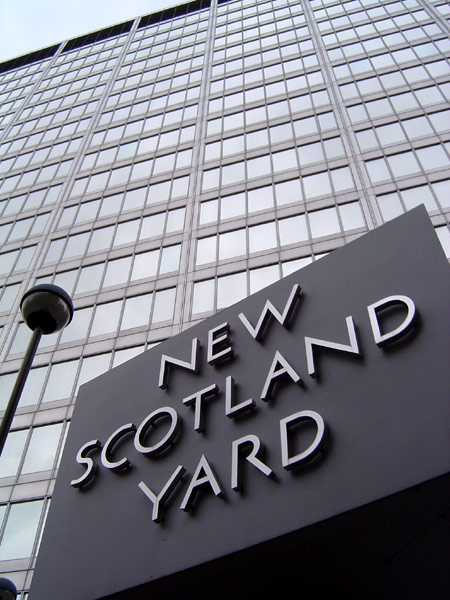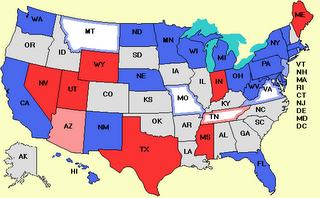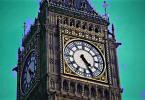
One political drama will dominate 2007 - the fight for the soul of the Labour party. With Gordon Brown almost certain to succeed Tony Blair, the contest for deputy leader is the one to watch.In this exclusive interview, outsider candidate Jon Cruddas MP outlines his ambitious plans for reform of the Labour party. New New Labour, in fact.
The race to succeed John Prescott is a crowded field.
With the Prime Minister role reserved for a Mr G Brown of Downing St, cabinet ministers have been lining up to express an interest in the deputy job.The race is awash with Blairites. There is an alternative though. He has only been an MP for six years, yet Jon Cruddas is exciting activists across the Labour movement with his no-nonsense plan to renew the party. The member for Dagenham is not a Blairite.
Not by any stretch. 44-year-old Cruddas has serious working-class credentials. He was born near Portsmouth, the son of a sailor. His most notable rebellion against the government was over tuition fees, and when it transpires that he managed to get not just a degree but a masters and a PhD, all funded by the state, his refusal to make today's young people pay for their education makes perfect sense.
In the flesh, Cruddas is personable, sounds a bit like a cockney and certainly would not look out of place using the word geezer. His matey attitude is quite infectious, yet when faced with tough questions his evident intelligence and passion for the Labour movement becomes apparent. He is a Labour man to the core - neither the Old or New model. Just Labour.
In 1989, when Tony Blair was an up and coming shadow minister, Cruddas was a policy officer for the party. 1994 saw the start of the New Labour project, with the election of Blair as party leader.
It was also the year that Cruddas became chief assistant to the General Secretary of the Labour party. In 1997, he became deputy political secretary to the now Prime Minister Blair, a role within No.10 which acts as a bridge between the PM and the unions. He stayed in that job until he was selected for the safe Labour seat of Dagenham in 2001.
His wife of 14 years, Anna Healey, is a fellow activist who has worked for a string of Labour Cabinet ministers.Suffice to say that Jon Cruddas probably has a clearer understanding of how the Labour party actually works than anyone else. Which is probably why colleagues approached him and asked him to stand for deputy leader.
The role is an often overlooked one. The deputy is supposed to be the voice of the party, a man or woman that the grassroots and the unions trust as one of their own. John Prescott's huge popularity within the Labour movement comes in part from the contrast he offers to Blair. Labour has been haemorrhaging members since the glory days of 1997.
While some of that loss in interest was to be expected, the war in Iraq saw huge numbers of activists leave the party. It is the case that all political parties have lost members, and that political participation is down in all mature democracies.
For example, between 1998 and 2004, the French Parti Socialiste lost 60% of its membership. Both the LibDems and the Tories are losing members. The Labour party now has less than 200,000 members, the lowest figure since the1930s.The days of mass membership political parties are over it would seem.
Cruddas disagrees."The problem we have at the moment is that all the political parties are camped out on a specific part of the electoral landscape, middle England.
“How do you re-enfranchise everyone else and rebuild democratic participation, debate and accountability at a local level?"I don't think we are post-party. Take London, I am involved in living wage campaigns, anti-fascism, really lively forms of political mobilisation.
“Trouble is that the Labour party is not involved in it. That is not to say that politics is dead, just the way the Labour party is doing it needs to be rewound and rebuilt."
The consequence of falling membership is that the parties are relying on big individual donors to pay for their upkeep, and the ongoing loans-for-peerages investigation makes politicians seem more distant from the concerns of ordinary people than ever.
Cruddas thinks that creates a dangerous situation where the government aren't interested in the issues that worry voters."The recent Queen’s Speech was only about security in terms of terrorism, migration and criminality. There was no notion of the 'good society' or of what we stand for. We must try to modernise ourselves so that we go with the grain of people's contemporary insecurities.
“Talk to my community about security and they will talk about housing insecurity, they feel vulnerable in terms of being able to access healthcare.“Simply saying 'clamp down' does not present a positive agenda that helps communities navigate through change."
Though he is full of praise for Blair, calling him a genius at one point, he cites 2001 as the point at which the party lost its way and the government became completely disconnected from its own supporters.
"I always thought of the government as a bit like the Thatcher government, first period you put down roots then you radicalise in your second period.
"That is what I hoped for in 2001 and 2005 and in effect that didn't happen. Foundation hospitals, top-up fees and then the war in Iraq just crowded out everything.
“We lost a sense of mission, of zeal. I think a few wheels fell off there. I think it is retrievable but we didn't use our second term in the way that I anticipated and a lot of members felt that as well."
The decline in Labour membership is also to do with the way that Tony Blair, scared of the activists and ever-fearful that old-Labour will hijack the party, has effectively bypassed the membership.
Party conference, which is actually where policy should be debated and decided, has become a stage-managed platform for the government. Luckily for Cruddas, the elections of a leader and deputy are one of the few real democratic processes left in the Labour party.
The elections will probably take place in late July, after a five week contest. Any MP who wants to stand needs the backing of 12.5% of Labour MPs, at present that means 44 endorsements. The party uses an electoral college to elect its leadership, split three ways between the MPs and MEPs, the party membership and members of affiliated unions. That means over a million people will get a vote. Any candidate that gets 50% or more of the vote wins outright, otherwise further elimination ballots will be held.
The Tories are already trying to portray likely Prime Minister-elect Gordon Brown as a dour Scottish accountant, who lords it over English voters while decisions that effect his constituents are taken in Edinburgh.
"Gordon Brown has got as much interest in the health of my constituents as his own. I am really interested in Brown as a politician. “He has within him the power to transcend the rules of the game and turn the page on a specific period of politics.
“I think he can reintroduce the ethic of public service in a really interesting way. I think it could cut through a lot of the hostility towards the Westminster game. "Then there is his intellectual rigour. If he can combine them, I think he can really reintroduce himself as a figure for the next era, taking us beyond the spin, the smoke and mirrors, through his own personality.”
Cruddas is equally confident the Scot can take on the revitalised Tory party and win.
"I think he could well compartmentalise Cameron and the Tories as almost a hangover from the period he is going beyond. He has that sense of duty that was so admired in the late John Smith, more than just atomised consumption and celebrity."
Will 2007 provide the moment that the grassroots take control of the Labour party, or will the disconnect between voters and politicians continue? Cruddas thinks that if Labour can learn to listen, it could be reborn. "Politicians tend to rip out complexity and then offer simplistic solutions to what they see as simple questions.
“Certainty is the hallmark of politicians. I look at it the other way. We should acknowledge the complexity of the world. People do and they want politicians to."
Perhaps the clearest sign that Jon Cruddas' candidacy is truly about the party and not his own ambition is his assertion that he will not accept a government department to run if he is elected deputy leader. In marked contrast to John Prescott, he says he will work on renewing the party, and leave the snakes and ladders of political ambition to others.
Can the Labour party honestly be reborn as a membership-led progressive party? 2007 is the year we will find out.
This article first appeared in the January issue of The Pink News which is out now.


















